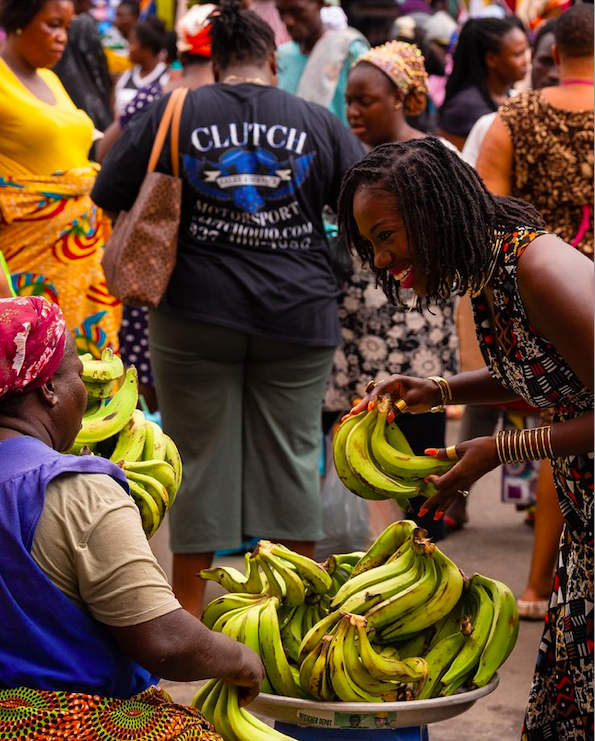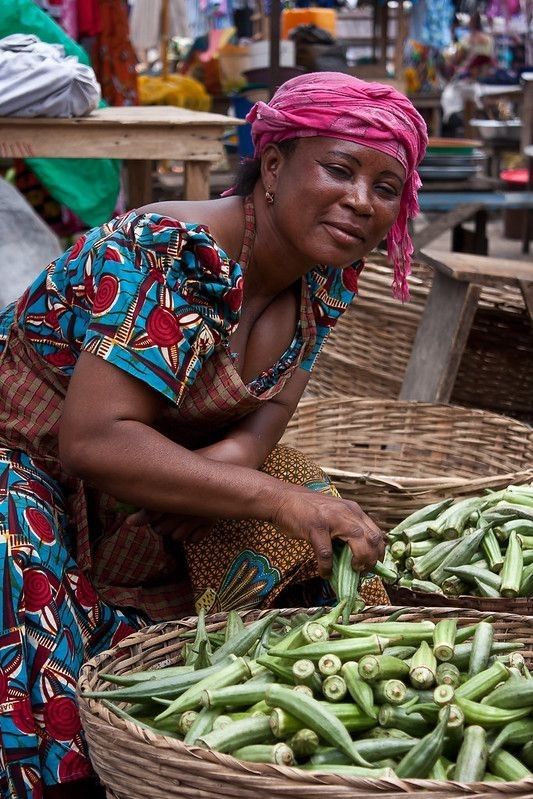“Ahịa bụ ndụ.” – The market is life.
Long before banking halls, online shopping, and malls, the Igbo people built their economy around something simple yet powerful: the market day. The Igbo week wasn’t seven days, but four, marked by Eke, Orie, Afor, and Nkwo. These weren’t just days of the week, they were economic engines, social calendars, and cultural anchors.
Every town had a “big day” when its market drew traders and buyers from far and near. This cycle shaped trade, trust, and even time itself in Igboland.
The Market Day Cycle
The Igbo four-day cycle wasn’t random; it was carefully organized. Each community had one main market, and that market was tied to one of the days; Eke, Orie, Afor, or Nkwo. For instance, if a town’s market fell on Orie, it meant that every Orie day, people would gather there for trade, meetings, and celebrations.
Because each town had a different market day, people could travel to neighboring towns in turn. A farmer might sell yams in his village on Afor day, then visit the next town on Nkwo day to buy salt, and another on Orie to sell palm oil. This created a rotation of commerce that ensured goods kept moving and communities stayed connected.
The four-day cycle wasn’t just a trading timetable, it was a way of organizing life itself.
Economic Role
The markets were bustling centers of economic life. Goods exchanged included:
- Farm produce like yams, cassava, and vegetables.
- Crafts and tools made by blacksmiths and potters.
- Palm oil and wine, central to both trade and culture.
- Livestock such as goats and chickens.
- Salt, beads, and cloth, often brought from long-distance traders.
Trade started with barter; exchanging what you had for what you needed. Cowries later became a form of currency, and eventually colonial money entered the system. Yet, through all these changes, the foundation of the market remained strong: trust.
Because many traders met repeatedly at the same markets, relationships were built over time. A handshake or spoken word carried weight, and reputation was currency in itself. This trust-based system kept trade flowing even without modern contracts.

Social and Cultural Role
For the Igbo, market days were far more than trading sessions, they were living theaters of community life. Each gathering carried the pulse of society, where commerce blended seamlessly with culture.
- Conflict resolution and trust: The market square doubled as neutral ground where elders settled disputes publicly. Fairness mattered because everyone was watching, so the market became a place where justice and trust were reinforced.
- Matchmaking and social ties: For young men and women, market days were moments of connection. A chance meeting across stalls or during a visit often blossomed into courtship, with many marriages tracing their beginnings to an Eke or Nkwo gathering.
- Cultural performances: Music, drumming, masquerades, and storytelling colored the atmosphere. Trade mixed with entertainment, reminding people that commerce and culture went hand in hand.
- Community rhythm: The four-day cycle shaped farming, travel, ceremonies, and rest. The market wasn’t just an event, it was the calendar that ordered daily life.
In truth, the Igbo market was not just a place to exchange goods. It was the heartbeat of society, where economic, social, and cultural life converged in a way that gave every man, woman, and child a sense of belonging.
Impact on Igbo Civilization
The four-day market system was more than an economic tool, it was the backbone of Igbo civilization. Long before banks or supermarkets, the system kept wealth circulating. It allowed communities to be self-sustaining while also being interconnected.
This structure ensured no single community was isolated; trade routes became cultural routes, weaving the Igbo into a tightly knit society. The market system was an early form of economic integration, one that thrived on cooperation and mutual benefit.
Modern entrepreneurs can draw rich lessons from the Igbo market system:
- Networking matters: Just like traders who built trust over time, today’s entrepreneurs must focus on relationships, not just transactions.
- Rotation creates opportunity: Diversifying where and how you show up, whether online platforms or physical markets, expands reach.
- Community first: Markets were about the people, not just profit. Businesses that serve communities thrive longer.
- Adaptability: The shift from barter to cowries to currency shows the power of evolving with the times.
The Igbo “market day hustle” is very much alive today. Every entrepreneur, content creator, or small business owner carrying goods to sell, or pushing ideas online, is part of that same spirit.
Conclusion
Eke, Orie, Afor, and Nkwo were more than days on a calendar, they were the rhythm of Igbo life. They organized trade, trust, travel, and even culture. They remind us that commerce is not just about money; it’s about people, connection, and shared progress.
In today’s world of endless hustle, where entrepreneurs chase opportunities across digital and global markets, the wisdom of the Igbo market cycle still speaks: success comes not just from what you sell, but from how you connect.
The past is never truly gone, it lives on in the marketplace of our daily grind.
